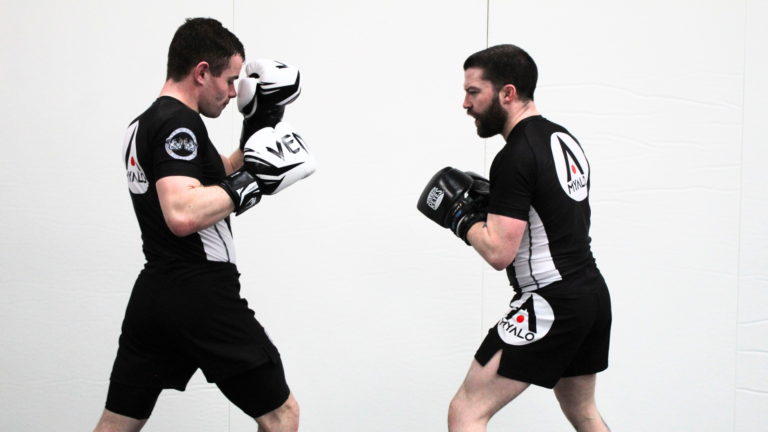JUNIOR MARTIAL ARTS MEMBERSHIP
Check out what our members had to say!
ExcellentBased on 62 reviews
 Aaron Comerford21 November 2023One of the best gyms I have ever been a part of. This gym makes combat sports feel like a team sport. Coaches absolutely superb and the members so welcoming with no bravado floating around at all. Whether it’s your first day or 100th you won’t be able to tell the difference. If you’re thinking about joining….Do 5 ⭐️
Aaron Comerford21 November 2023One of the best gyms I have ever been a part of. This gym makes combat sports feel like a team sport. Coaches absolutely superb and the members so welcoming with no bravado floating around at all. Whether it’s your first day or 100th you won’t be able to tell the difference. If you’re thinking about joining….Do 5 ⭐️ Thomas S16 March 2023Myalo is a brilliant gym. The coaches and students are extremely welcoming and encouraging. I had zero experience in any combat sport prior to joining a few months ago but my confidence and fitness has developed greatly. Very thankful for the coaches and teammates
Thomas S16 March 2023Myalo is a brilliant gym. The coaches and students are extremely welcoming and encouraging. I had zero experience in any combat sport prior to joining a few months ago but my confidence and fitness has developed greatly. Very thankful for the coaches and teammates Matthew O'Rourke10 August 2022Once you find your footing in class, it's hard not feeling at home in the gym.
Matthew O'Rourke10 August 2022Once you find your footing in class, it's hard not feeling at home in the gym. Joey Brennan10 August 2022Great atmosphere in the gym there’s something for everyone there great for mental health and confidence boost
Joey Brennan10 August 2022Great atmosphere in the gym there’s something for everyone there great for mental health and confidence boost Adrian Foley18 July 2022I'm into my third month at Team Ryano now and I just can't say enough good things about the place. The friendly atmosphere, the work ethic, the skill level... all these things combine to make it the real deal. Whether you're aiming to step into the octagon or just into your favourite jeans that don't fit anymore, this is the place to be.
Adrian Foley18 July 2022I'm into my third month at Team Ryano now and I just can't say enough good things about the place. The friendly atmosphere, the work ethic, the skill level... all these things combine to make it the real deal. Whether you're aiming to step into the octagon or just into your favourite jeans that don't fit anymore, this is the place to be.
Testimonial's
BJJ stands for “Brazilian Jiu-Jitsu.” It’s a martial art and combat sport that focuses on grappling, particularly ground fighting. Here’s a brief overview:
- Origins: Brazilian Jiu-Jitsu’s roots can be traced back to Judo, which was introduced to Brazil by Mitsuyo Maeda, a Japanese judoka. The Gracie family of Brazil, notably Carlos and Helio Gracie, are credited with refining and popularizing the art by emphasizing ground combat and developing techniques that allowed a smaller, weaker person to defeat larger and stronger opponents.
- Techniques: BJJ promotes the idea that a smaller, weaker person can successfully defend against and subdue a bigger, stronger assailant using leverage and proper technique, primarily by applying joint locks and chokeholds.
- Gi and No-Gi: BJJ can be trained in two main formats: “Gi” and “No-Gi”. “Gi” refers to training with the traditional kimono, while “No-Gi” refers to training without it, usually in shorts and a rash guard. The presence or absence of the gi affects the available techniques and grips.
- Sport Aspect: BJJ tournaments are held worldwide and are split into various weight classes and skill levels. Matches can be won by points (gained by achieving dominant positions or performing certain maneuvers) or by submission (making the opponent tap out).
- Self-defense: While it’s a popular sport, BJJ is also lauded for its effectiveness in real-life self-defense situations, especially when the altercation goes to the ground.
- Ranking: Similar to other martial arts, BJJ has a belt ranking system. Adult practitioners typically progress from white to blue, purple, brown, and finally black. There are also degrees on black belts, and a few practitioners achieve further belts like coral (black and red) and red.
- Philosophy: Beyond the physical aspect, BJJ is often seen as a way of life by many practitioners. It promotes principles like respect, discipline, patience, and continuous learning.
Today, BJJ is practiced by individuals around the world, both as a sport and a method of self-defense, and it’s frequently incorporated into the training regimens of mixed martial arts (MMA) fighters.
Brazilian Jiu-Jitsu (BJJ) offers numerous benefits for juniors, including:
1. Physical Fitness
BJJ promotes overall physical health, improving strength, flexibility, and cardiovascular endurance.
2. Discipline and Focus
Training in BJJ instills discipline and enhances focus, as juniors learn to follow instructions and concentrate during practice.
3. Problem-Solving Skills
BJJ requires strategic thinking and problem-solving, fostering mental agility and adaptability.
4. Confidence Building
Juniors develop self-confidence and resilience by overcoming challenges and progressively mastering techniques.
5. Social Skills
– BJJ classes provide a supportive community, helping juniors build social skills, make friends, and work effectively in a team.
6. Self-Defense Skills
BJJ equips juniors with practical self-defense skills, promoting personal safety and awareness.
7. Emotional Regulation
Through controlled sparring sessions, juniors learn to manage emotions, stay calm under pressure, and handle stress.
8. Respect and Sportsmanship
BJJ emphasizes respect for instructors, training partners, and the sport itself, fostering a culture of sportsmanship.
9. Goal Setting
Junior practitioners set and achieve goals as they progress through belt ranks, teaching valuable goal-setting habits.
10. Lifetime Activity
BJJ provides a foundation for a lifelong interest in physical activity and a healthy lifestyle.
In summary, Brazilian Jiu-Jitsu for juniors goes beyond physical fitness, offering a holistic approach to personal development encompassing mental, emotional, and social aspects.
MMA, or Mixed Martial Arts, is a combat sport that integrates various striking and grappling techniques from different martial arts disciplines. Fighters use a combination of skills from boxing, kickboxing, wrestling, Brazilian Jiu-Jitsu, and more. Competitions take place in a controlled environment, and the sport has gained widespread popularity for its dynamic and versatile nature.
1. Physical Fitness
MMA training improves cardiovascular health, strength, flexibility, and overall physical fitness.
2. Self-Defense Skills
Juniors learn practical self-defense techniques, promoting personal safety and confidence.
3. Discipline and Focus
MMA instills discipline and enhances focus as juniors adhere to training routines and techniques.
4. Mental Toughness
MMA teaches resilience and mental toughness, helping juniors face challenges and setbacks.
5. Coordination and Balance
The diverse techniques in MMA enhance coordination, balance, and body awareness.
6. Social Skills
MMA classes provide a supportive community, fostering teamwork, communication, and social skills.
7. Confidence Building
Success in mastering techniques and facing challenges boosts self-esteem and confidence.
8. Emotional Regulation
Through controlled sparring, juniors learn to manage emotions, stay calm, and make decisions under pressure.
9. Respect and Sportsmanship
MMA emphasizes respect for coaches, training partners, and opponents, promoting sportsmanship.
10. Fitness as a Lifestyle
MMA encourages a lifelong interest in physical activity and a healthy lifestyle for juniors.
These benefits contribute to the holistic development of juniors, encompassing physical, mental, emotional, and social aspects.


